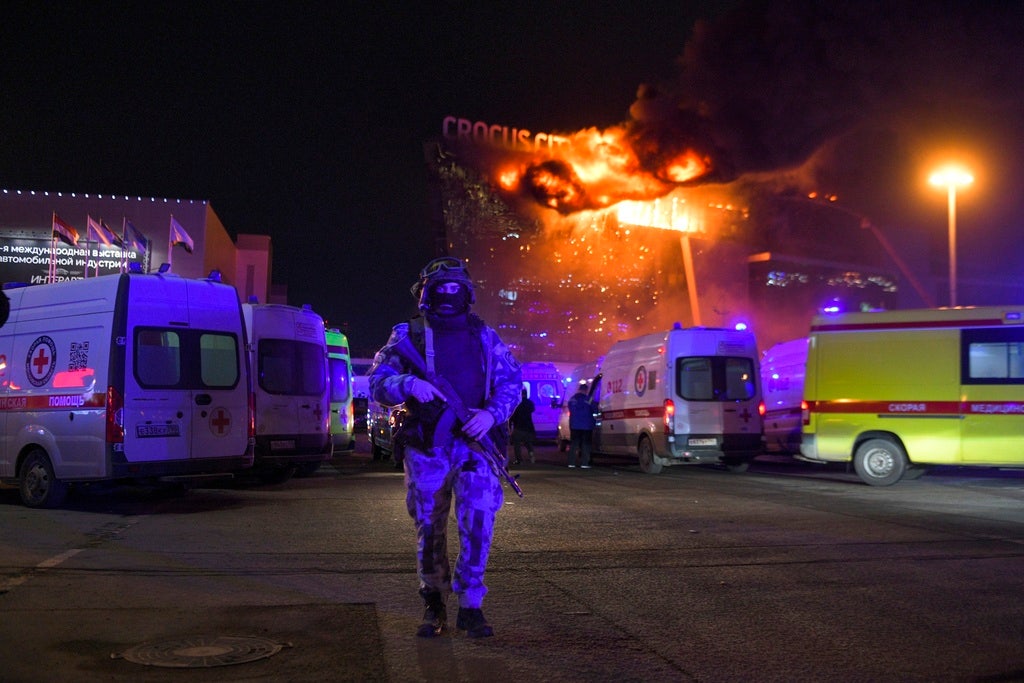The recent deadly terrorist attack in Moscow by ISIS-K has drawn attention to the terrorist organization not only in the U.S. and other European nations but also among extremists worldwide. The attack, which killed more than 130 people and injured 180 others, has been seen as a recruitment tool for the Islamic State, showcasing its ability to launch such brutal attacks. The incident has raised concerns about the reach and influence of ISIS-K and its appeal to potential jihadists. Experts warn that attacks like these can inspire more individuals to join extremist groups and carry out similar attacks.
Four men from Tajikistan were charged in a Russian court following the concert hall attack, with reports indicating that they showed signs of extreme physical abuse. Videos of two of the men being tortured surfaced on Telegram, raising questions about the tactics used by the Russian authorities to deter future attacks. Security experts believe that such actions are unlikely to prevent terrorist activities and may even be exploited by ISIS for recruitment and propaganda purposes. The brutality exhibited by states like Russia could be used by extremist groups to fuel anger and justify further violence against perceived enemies.
ISIS-K gained international attention in the U.S. after the 2021 bombing at Abbey Gate during the Taliban takeover of Afghanistan. The group remained relatively quiet until earlier this year when it claimed responsibility for twin bombings at a memorial ceremony for Iranian General Qasem Soleimani, resulting in numerous casualties. The resurgence of ISIS-K highlights the ongoing threat posed by extremist groups, even when they are not in the spotlight. The reach of the Islamic State extends beyond Afghanistan, demonstrating that these organizations can operate in various regions and launch attacks with devastating consequences.
Islamic extremists have targeted Russia for over three decades in response to its military operations in the Middle East, South Asia, and other regions with significant Muslim populations. The attacks in Russia are seen as a form of punishment for its presence in Muslim countries perceived as falling under the Islamic State’s influence. According to experts, jihadist groups consider countries like the U.S., Great Britain, France, China, and Russia as enemies and occupiers. Russia, in particular, has been a consistent target for terrorist attacks, with extremists taking advantage of opportunities to strike whenever possible.
The White House has emphasized the need for vigilance in monitoring the threat posed by ISIS-K and ensuring the safety of the American homeland. National security adviser John Kirby stated that the U.S. had alerted Moscow to the possibility of an attack weeks before the incident, highlighting the importance of proactive surveillance and information sharing to prevent future terrorist activities. Despite not detecting any credible threat to the U.S. homeland from ISIS-K, officials remain cautious and acknowledge the ongoing risks posed by extremist groups. The collaboration between countries and intelligence agencies plays a crucial role in addressing the evolving challenges of global terrorism and protecting against such threats.


